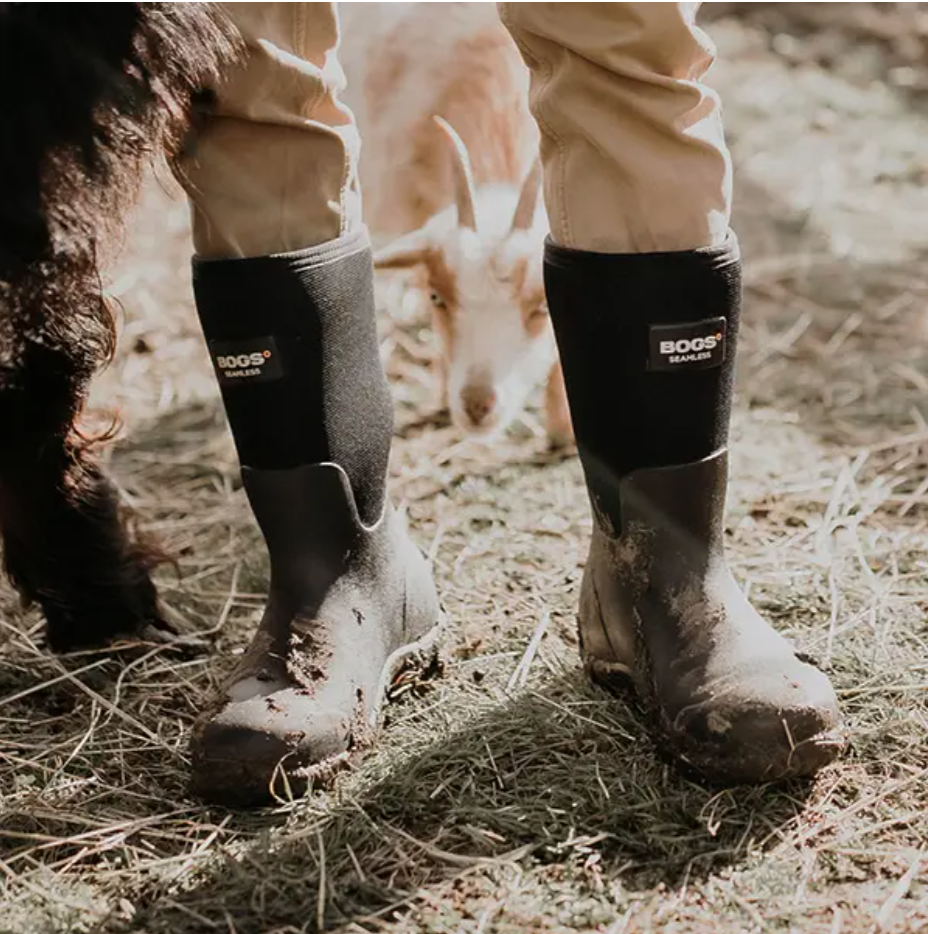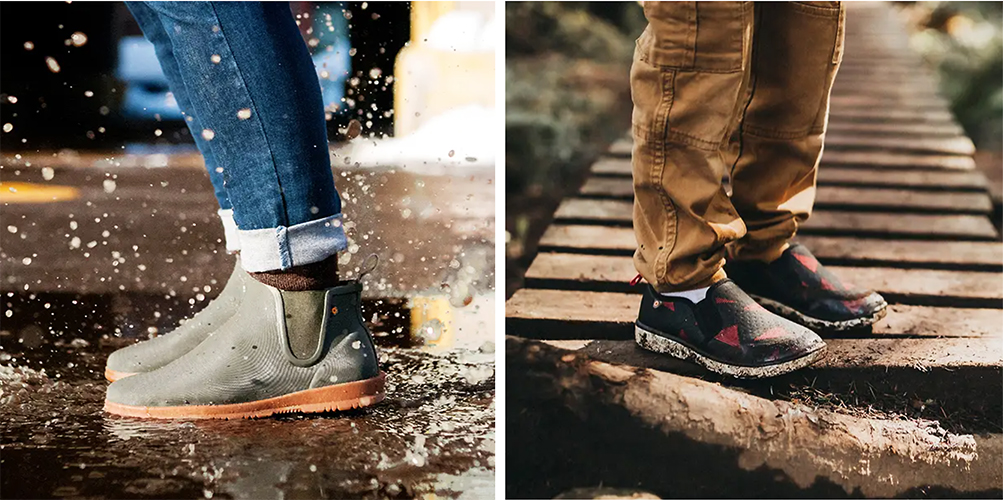Bogs saw North American revenues on a wholesale basis increase 5 percent in the fourth quarter to end with flat sales for the year, according to the outdoor footwear brand’s parent, Weyco Group. Bogs’ backlogs are “very strong” due to boot shortages in the marketplace.
“Our Bogs business held up well during 2020, and we were pleased with how the business accelerated in the latter part of the year as consumers spent more time outdoors,” said Tom Florsheim, Weyco’s chairman and CEO, on a conference call with analysts. “Even with relatively modest precipitation in November and December across the country, demand for Bogs product was very strong.”
The pandemic caused Bogs sales to fall 23 percent in the first quarter and 30 percent in the second quarter. Sales recovered in the third quarter, up 6 percent, and continued in the fourth quarter amid lean boot inventory in the overall marketplace.
Florsheim said about Bogs, “While we entered the fall with adequate inventory, we quickly sold through key programs as there was a shortage of outdoor boots in the general market to satisfy the increasing demand. We were able to replenish a good portion of these programs to meet unexpected demand in early 2021. During this past year, Bogs also continued to diversify its product mix, selling more lightly insulated and lifestyle-oriented products in the women’s market while developing its men’s occupational work-related footwear.”
Weyco officials also noted that Bogs’ backlog remained healthy. John Wittkowske, CFO, said on the call, “Bogs’ backlog is very strong because there was a shortage of boots out there last fall.”
Wittkowske said retailers continue to aggressively stock casual offerings for fall selling while reducing purchase orders on Weyco’s traditional dressier styles. Wittkowske said about Bogs, “That business is very strong right now when you look at the confirmed bookings.”

Weyco Group’s Q4 Sales Down 29 Percent
Net sales for Weyco Group in the quarter were down 28.7 percent to $62.0 million.
Among segments, sales in the North American wholesale segment, including North American wholesale sales and licensing revenues, were $46.2 million, down 32.8 percent year-over-year. The 5 percent gain at Bogs was offset by declines across its three legacy brands of Florsheim, Nunn Bush and Stacy Adams.
Net sales in the North American retail segment, including sales from the company’s e-commerce businesses and brick & mortar stores in the U.S., were down slightly to $8.7 million from $9.1 million a year ago. One highlight was e-commerce, which grew 15 percent led by Bogs. For the year, Bogs’ online sales grew 53 percent in the U.S. and nearly 80 percent in Canada.
Other net sales, including its wholesale and retail net sales of Florsheim Australia and Florsheim Europe, were $7.1 million compared to $9.0 million in the fourth quarter of 2019.
Earnings from operations totaled $7.9 million compared to $11.5 million in the fourth quarter of 2019. Net earnings totaled $5.1 million, or 52 cents a share, down from $8.8 million, or 90 cents, in last year’s fourth quarter.
For the full year, overall sales fell 35.7 percent to $195.4 million. The net loss totaled $8.5 million, or 87 cents, compared to earnings of $20.9 million, or $2.10, in 2019. Adjusted net earnings were $3.2 million, or 32 cents, in 2020.
Asked about supply chain disruptions, Florsheim said the supply chain is functioning normally except for container shortages. The company sees up to two-week delays, but a significant impact on first-quarter sales is not expected.
He said, “There’s so much being imported from China and other places in Asia that there is a big shortage of containers. It can be more difficult to get space. We’ve had to wait a week to two weeks. We’re paying a premium for containers. Once the containers get to the West Coast, there are issues with getting them through the ports. Part of that is due to COVID-19 where workers are out with the virus. But, it is slower getting them through the ports on the West Coast. That’s the only hiccup. In general, the factories have the capacity. They’re hungry. We have all the shoe manufacturers that we need. It’s a matter of getting them here.”
Photos courtesy Bogs
















